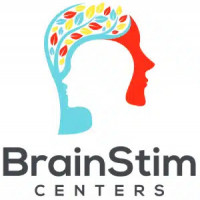What to Expect During Your First Transcranial Magnetic Stimulation Session

So, you've scheduled your first Transcranial Magnetic Stimulation (TMS) session—congratulations! You're taking a bold step toward improving your mental health with one of the most innovative treatments available today. But if you’re like most people, you're probably wondering: What actually happens during a TMS session? Will it hurt? How long does it take?
Whether you're exploring TMS in Lancaster, CA, or somewhere else, this guide breaks down everything you need to know about your very first appointment. From check-in to walking out the door, we'll walk you through every moment of the experience.
A Quick Recap: What Is TMS Therapy?
TMS is a non-invasive, FDA-approved treatment for major depressive disorder (MDD), anxiety, and other mood disorders. It uses targeted magnetic pulses to stimulate underactive parts of the brain—specifically, areas responsible for mood regulation.
Why choose TMS?
Drug-free alternative with minimal side effects
No anesthesia or recovery time
High success rate, especially for treatment-resistant depression
Clinics offering TMS in Lancaster, CA have seen a rise in demand as more people seek non-pharmaceutical approaches to mental health.
Before You Arrive: What to Know
Before your first session, your provider will conduct a comprehensive evaluation to ensure you're a good candidate. This includes:
Reviewing your medical and psychiatric history
Discussing past treatment attempts
Understanding your current symptoms
This consultation is crucial—it helps tailor the TMS protocol to your brain's specific needs. If you're getting TMS in Lancaster, CA, reputable clinics often use advanced mapping techniques to improve treatment accuracy.
Pro tip: Wear comfortable clothing and avoid caffeine right before your session. Bring something to read or listen to while you wait.
Arrival and Check-In
Most clinics have a calm, welcoming environment. When you arrive for TMS in Lancaster, CA, you'll check in just like you would at a regular doctor’s appointment. Staff members may:
Verify your insurance coverage
Go over what to expect
Have you fill out a brief mood assessment or questionnaire
These assessments will help track your progress as sessions continue.
The Treatment Room: What It Looks Like
Once you're called in, you’ll be taken to a treatment room. It’s not intimidating—no scary hospital vibes here. You’ll find a comfortable, reclining chair and a TMS machine that includes a coil connected to a monitor.
Your technician or provider will:
Position a magnetic coil against your scalp
Place a cushioned headrest for stability
Give you earplugs to soften the clicking sound from the pulses
If you're undergoing TMS in Lancaster, CA, rest assured that the staff is trained to prioritize comfort and explain each step clearly.
Step One: Brain Mapping (Motor Threshold Test)
Your first session involves something called a motor threshold test. This is how the provider identifies the ideal treatment location and intensity.
Here’s how it works:
The coil sends brief magnetic pulses to the part of the brain that controls movement.
Your fingers or hand may twitch in response. This helps the technician find the right spot for ongoing sessions.
It’s a bit strange, but not painful.
Clinics performing TMS in Lancaster, CA often use neuronavigation or other high-precision tools to make this process as accurate as possible.
Step Two: The Actual Treatment
Once mapping is complete, your real treatment begins. The coil moves slightly to target the prefrontal cortex, which is often underactive in people with depression.
What does it feel like?
A light tapping or knocking sensation on your scalp
A clicking noise with each pulse
Some mild scalp tenderness afterward (completely normal)
Session length: 20–40 minutes depending on the specific protocol.
You’re fully awake and can listen to music, meditate, or even chat with your technician.
People undergoing TMS in Lancaster, CA frequently comment on how easy and manageable the first session feels once they settle in.
After the Session: What Happens Next
The best part? There’s no downtime. You can drive yourself home or head back to work. Many patients report feeling tired or mildly foggy the first few times, but this usually fades quickly.
Here’s what to expect after your first TMS session:
Mild scalp soreness
Slight headache
Feeling emotionally drained or uplifted
Your clinic will likely schedule you for five sessions per week for 4–6 weeks. Providers offering TMS in Lancaster, CA often keep flexible hours to accommodate working professionals.
Common Myths Debunked
1. “It’s like shock therapy.”
Not at all. TMS is gentle and non-invasive—no seizures, no sedation, no hospital stays.
2. “I’ll feel better immediately.”
While some people feel a mood lift within the first few sessions, most notice steady improvement over 2–4 weeks.
3. “If it didn’t work for my friend, it won’t work for me.”
Every brain is different. Many people respond to TMS even after multiple medications have failed.
Tips for a Successful First TMS Experience
Stay consistent: Skipping sessions can delay or reduce results.
Communicate: Tell your provider if anything feels off.
Hydrate and rest: Helps minimize headaches or fatigue.
Track your mood: Many patients keep a journal to reflect on subtle shifts in thinking or energy.
Patients undergoing TMS often see the best results when they actively engage in their treatment and keep realistic expectations.
Real Patient Experience in Lancaster, CA
Meet Monica, a 38-year-old teacher who struggled with depression for over a decade. After trying six medications with minimal relief, she began TMS in Lancaster, CA.
"The first session was weird but not scary," she recalls. "By week three, I was laughing again. I didn’t realize how long I’d been numb."
Today, Monica continues maintenance sessions every few months and has returned to her vibrant self.
FAQs About Your First TMS Session
Q: Is TMS painful?
Not really. You may feel a tapping sensation, but most people find it tolerable.
Q: Will I be sedated or need someone to drive me?
Nope! TMS is non-invasive. You can drive yourself before and after.
Q: How many sessions do I need?
Typically 20–36 sessions over 4–6 weeks. Your provider will guide you based on your response.
Q: Is TMS covered by insurance?
Many insurance plans now cover TMS for depression if other treatments haven’t worked. Check with your provider.
Final Thoughts
Your first TMS session marks the beginning of a healing journey. While it’s normal to feel anxious or uncertain, the process is straightforward, safe, and often life-changing.
If you're considering TMS in Lanhttps://brainstimcenters.com/caster, CA, know that you're not alone. More and more people in the area are turning to this breakthrough therapy to reclaim their joy, focus, and quality of life.
From the moment you walk into your first session to the day you notice the fog lifting, TMS offers hope—one pulse at a time.
Note: IndiBlogHub features both user-submitted and editorial content. We do not verify third-party contributions. Read our Disclaimer and Privacy Policyfor details.




